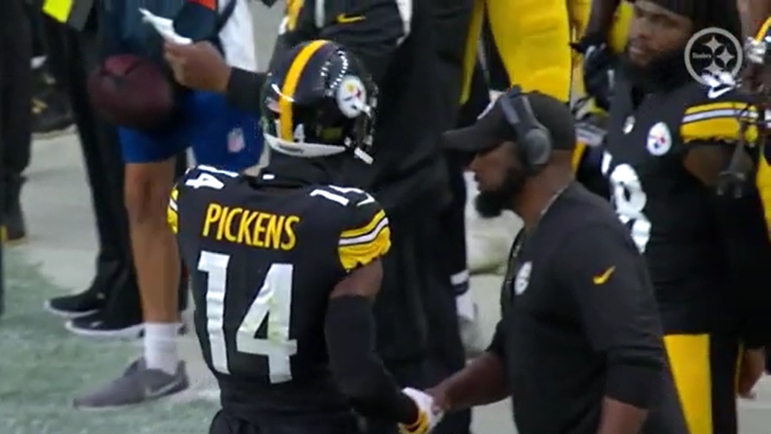As with any unified grouping of human beings, an athletic team is like a living organism. A professional football team, for example, consists of a roster of players as well as their coaches, all of whom interact across roles, hierarchies, pedigrees, and levels of experience.
For the Pittsburgh Steelers, it’s an inherent function of operations. It’s something that they build and foster as a natural extension of their vision of how a locker room ought to function, and that manifests especially in the peer-to-peer coaching that has been such a part of their legacy.
“I think you see all veteran guys helping younger guys. It’s just a component of team. It’s a component of our culture that we cultivate and appreciate, and we do so intentionally”, head coach Mike Tomlin told reporters earlier this week.
He was asked, at that time, specifically about edge rusher T.J. Watt, who earlier that day had addressed questions about his own role in being the communicator in a room that now largely consists of newcomers, including among them Derrek Tuszka, who has been with team for less than a full year.
Along with Hamilcar Rashed Jr., Ron’Dell Carter, and Delontae Scott, it is a youthful room, in which mix you can still throw Watt’s co-starter, Alex Highsmith, now going into year three. Now a sixth-year veteran, he is comparatively long in the tooth, but a well-learned student of the game.
His resume, of course, speaks for itself and lends a natural authority to which others are drawn, something that Tomlin also acknowledged when he was asked about players like Tuszka seeking Watt out for some counseling at the position.
Amply established as one of the greatest players in football right now, Watt understands that his role is evolving within the team, to, frankly, include the team more. He has achieved about all he can individually, and has spoken earlier this offseason of the importance to him of being more involved with his teammates
Of course, he’s far from the only player who does this, and that runs the gamut of relationships. Even veteran cornerback Levi Wallace, a free agent signed this year, talked about how second-year safety Tre Norwood has provided him some guidance about the Steelers’ defense. It’s not always about accrued experience, after all.
I can’t speak to how much it compares and contrasts with the culture of other teams, but the manner in which the peer-to-peer coaching has been a bedrock of Steelers locker rooms for some time is well documented. It has been part of their draft philosophy, especially in the era of free agency, to get young players in the room to learn from the veterans whose places they would eventually take.
Now, Rashed isn’t going to be taking Watt’s spot any time soon, but the broader point remains. It’s ultimately about putting the betterment of the team above personal goals, as well as simply wanting to see others succeed, and empowering them to do so.








